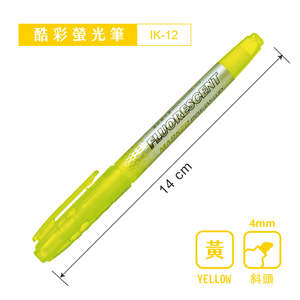章節試閱
Murakami Haruki's“ Charm ” and the“ Empty
Narrative ”
Matthew C. Strecher
1. Introduction
Why does it so often seem as though Murakami Haruki is writing his novels about me, about my life? Why is he read so enthusiastically, all over the world?
These are the two most common questions asked of me as a scholar of Murakami Haruki literature. The former question comes, generally, from undergraduate students encountering these works for the first time, while the latter is usually put by bewildered newspaper reporters and NHK producers, especially in early October as the Nobel Prize for literature is about to be announced. On some reflection, it becomes clear that these two questions are related to one another, and also to the concept of miwaku 魅惑, which is sometimes translated into English as “charm,” but may also be rendered as “fascination.” This essay will attempt to explain this fascination from the perspective of what we shall call the “empty narrative,” a narratological structure
in which an open space is developed within a novel or story into which the reader is not merely encouraged, but virtually required to insert her or his own personal narrative. It is a mode of reading that bears close relation to the reading strategies of reception theory, one in which a dialogic relationship is established between author and reader. Unlike reception theory, however, we will consider this relationship to develop not between author and implied reader ( cf. Iser 1980 ), but between Murakami and his actual readers, throughout the world. The result, as we shall see, is the development of a new fictional mode capable of crossing all borders—cultural, linguistic, social, generational, religious—to become something like a “universal text.” This, to take but a single step further, will lead us to the beginnings of a theory for a truly “global” literature.
2. All You Need Is Empathy
For some readers—this one included—this ability to develop an intuitive bond with the author is immediately attractive, and contributes to the sense of fascination, but also of participation in the text.
Consider, for instance, one of Murakami’s earliest short stories, “Binbō na obasan no hanashi” ( 1980; Story of a poor aunt ), in which the protagonist has a momentary flash in his mind of a bedraggled, middleaged woman that no one seems to notice or to want around. Then one day he realizes that there is a pale image of such a person clinging to his back. She is unobtrusive, uncomplaining, and, in her position on his back, not even visible to the narrator. Nor is she a mere hallucination, for others can see her too, though she takes on different forms for them—unique forms that connect intimately with their own personal experiences. What is a “poor aunt” for the narrator is a badly disfigured schoolteacher for another, a dog who died pathetically of cancer for yet another. For one viewer she is his own mother. In Jungian terms she is a sort of visible archetype, one who probably represents a vague sort of guilt toward those who are forgotten or ignored or devalued. Without too much difficulty we recognize this aspect of the “poor aunt,” and ( again, without too much difficulty) project our own vision onto her. Perhaps she will appear to one reader as a classmate in school whom
everyone bullied; or the homeless man on the corner who everyone passes, but no one ever looks at. Readers understand her intuitively, because she can and must become whatever each reader needs her to be.
The process of reading here is both natural and elegant. We read Murakami’s narrative, and then ( without necessarily realizing it ) superimpose our own reality on top of it, placing ourselves into the shoes of the narrator. In this sense, Murakami really is writing about us, the reader.
This is nothing more or less than a bond of empathy that develops between author and reader through the special gaze of the nameless, nondescript narrator, “Boku.” Empathy—expressed in Japanese as
kyōkan 共感 or kanjō i’nyū 感情移入—is of course one of the most fundamental tools for reading effectively, a process of entering the mind of the protagonist, sometimes of other characters, and in the
best instances, of the author. As such, empathetic reading cannot be called a phenomenon unique to Murakami fiction. Rather, we may describe the degree of empathy that emerges between text and reader, the level of dialogue that develops between ourselves and the author. If, as reception theory suggests, the act of reading is grounded in this dialogic relationship, then a literary structure that facilitates this sort of “give-and-take,” this meeting of the minds, is essential. The question then arises: on what level, and from what position, do author and reader approach one another? To what extent does the author—and the structural framework on which he or she constructs the narrative—permit the intrusion of the reader? Put in slightly simpler terms, how much does a given author or text permit the reader to re-write that text in her or his own image? It is not difficult to see that the higher the degree of latitude given readers, the greater the possibilities for empathetic reading—for reading/writing—will become.
Murakami Haruki's“ Charm ” and the“ Empty
Narrative ”
Matthew C. Strecher
1. Introduction
Why does it so often seem as though Murakami Haruki is writing his novels about me, about my life? Why is he read so enthusiastically, all over the world?
These are the two most common questions asked of me as a scholar of Murakami Haruki literature. The former question comes, generally, from undergraduate students encountering these works for the first time, while the latter is usually put by be...
推薦序
村上春樹從事寫作工作近40 年,獲頒無數獎項,被譽為日本當代最具國際影響力的作家。本校日本語文學系於2011 年成立「村上春樹研究室」,隔年即舉辦第1 屆村上春樹國際學術研討會,自此每年定期舉行盛會,成為特色。2014 年擴大為「研究中心」後,更以國外學術團體身分,兩次移師日本舉辦會議,展現臺灣學術能量。
研究中心為深化村上春樹學,以全方位的角度切入,推廣獨特的學術魔力,辦理微電影競賽、經典名著多國語言朗讀比賽、作品導讀、開設講座及遠距課程等多樣性的活動,其中「非常村上春樹」磨課師課程,榮獲2017 年第三屆學習科技金質獎,努力成果深獲肯定。
連續7 年豐富的會務經驗,盡其所能分享研究成果,研究叢書亦從近年的村上春樹中的「兩義性」,「秩序」,演進為今年第五輯的「魔力」。適逢淡江第五波,成立「熊貓講座」邀請大師講學之際,如能促成村上春樹本人及知名學者蒞校交流,必將掀起另一波研究風潮,特為文誌之,以資鼓勵。
淡江大學校長 張 家宜
村上春樹從事寫作工作近40 年,獲頒無數獎項,被譽為日本當代最具國際影響力的作家。本校日本語文學系於2011 年成立「村上春樹研究室」,隔年即舉辦第1 屆村上春樹國際學術研討會,自此每年定期舉行盛會,成為特色。2014 年擴大為「研究中心」後,更以國外學術團體身分,兩次移師日本舉辦會議,展現臺灣學術能量。
研究中心為深化村上春樹學,以全方位的角度切入,推廣獨特的學術魔力,辦理微電影競賽、經典名著多國語言朗讀比賽、作品導讀、開設講座及遠距課程等多樣性的活動,其中「非常村上春樹」磨課師課程,榮獲2017 年第三屆學習科...
目錄
特別寄稿論文
Murakami Haruki’s“ Charm” and the“ Empty Narrative”Matthew C. STRECHER 1
「人間ならざる者たち」の魅惑と恐怖─村上文学における動物(「象の消滅」を中心に)─沼野 充義 19
魅惑するナカタさんワールド 金水 敏 43
村上春樹と芥川龍之介─〈闇〉〈沈黙〉の「魅惑」、近代文学における一つの水脈─宮坂 覺 61
自己に魅せられる物語
─『騎士団長殺し』と寓意の脱落─柴田 勝二 83
投稿論文
『パン屋を襲う』論─システムをめぐる村上春樹文学の魅惑─鄒 波 105
村上春樹『スプートニクの恋人』における魅惑─「ぼく」とすみれとミュウ─荻原 桂子 135
村上春樹作品の語りの構造─額縁構造物語の産み出す世界の「魅惑」─落合 由治 163
火付けの魅惑─村上春樹「納屋を焼く」論─佐藤 敬子 189
魅惑の傷痕─村上春樹「木野」論─齋藤 正志 211
『女のいない男たち』の延長線として読む『騎士団長殺し』の「魅惑」─東日本大震災への思いを馳せて─曾 秋桂 233
『騎士団長殺し』─物語世界の新たな魅惑─浅利 文子 253
村上春樹『海辺のカフカ』と『竹取物語』─メタファーの魅惑の原点をめざして─賴 振南 283
『1Q84』・「ふかえり」の魅惑を創出する日本語の特性─英語・韓国語・華語との比較を通じて─
住田 哲郎 305
『遠い太鼓』の魅惑─村上春樹の滞欧体験─賴 錦雀 335
人名索引 359
書名・作品名索引 365
事項索引 377
特別寄稿論文
Murakami Haruki’s“ Charm” and the“ Empty Narrative”Matthew C. STRECHER 1
「人間ならざる者たち」の魅惑と恐怖─村上文学における動物(「象の消滅」を中心に)─沼野 充義 19
魅惑するナカタさんワールド 金水 敏 43
村上春樹と芥川龍之介─〈闇〉〈沈黙〉の「魅惑」、近代文学における一つの水脈─宮坂 覺 61
自己に魅せられる物語
─『騎士団長殺し』と寓意の脱落─柴田 勝二 83
投稿論文
『パン屋を襲う』論─システムをめぐる村上春樹文学の魅惑─鄒 波 105
村上春樹『スプートニクの恋人』における魅惑─...

 收藏
收藏

 4二手徵求有驚喜
4二手徵求有驚喜




 收藏
收藏

 4二手徵求有驚喜
4二手徵求有驚喜


